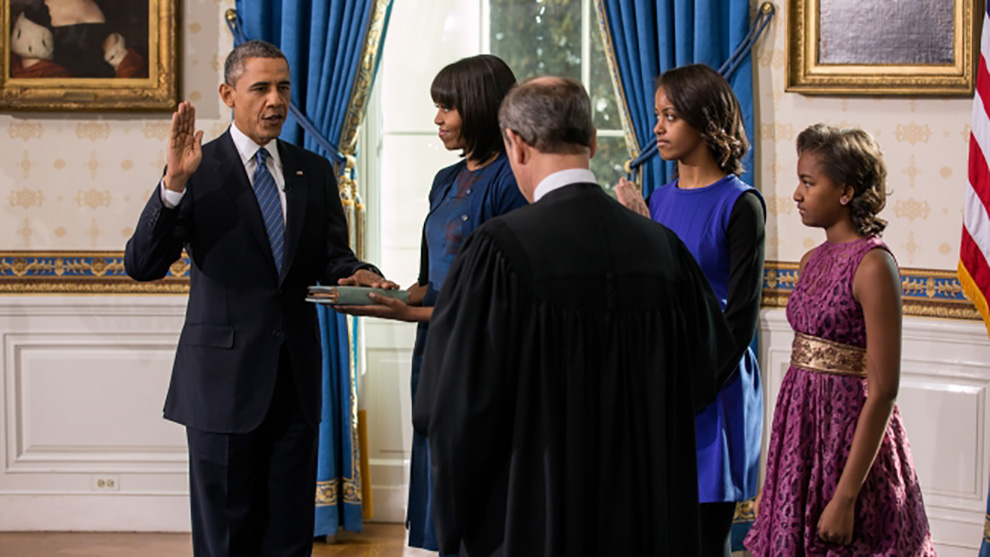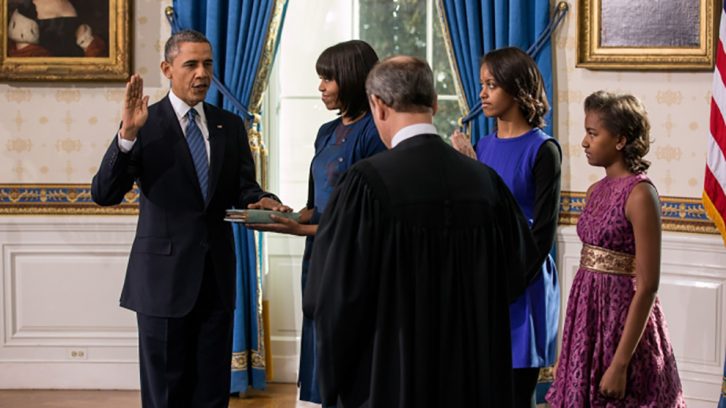U.S. Politics
Reflecting on a Presidency
American students in Halifax reflect on Obama and his time in office

caption
Obama at his second inauguration as President in 2012. (courtesy whitehouse.gov)
caption
Obama at his second presidential inauguration in 2012. (courtesy whitehouse.gov)On Tuesday, Jan. 10, U.S. President Barack Obama made his farewell speech to the country he led for eight years.
Widely loved by America’s allies abroad, Obama was an occasionally controversial character at home. He was often criticized for his healthcare polices by the right and drone strikes in the Middle East by the left.
Obama’s departure is a weighty moment for many American students here in Halifax.
Zach Greenham is a student at the University of King’s College who was born in Maine. He worries that, with Obama’s departure, the arts will take a serious blow.
“As someone who has plans to work in theatre, I no longer see the states as a truly viable option unless I have already established myself as an artist,” Greenham says. “Under Trump, I don’t think I have a future in America.”
Greenham, who says he “threw up out of disgust” when he learned Trump would become president, also worries that many of the changes made to American healthcare will leave when Obama does.
“I hope the American left can defend itself for the next four years, and try to maintain programs like Planned Parenthood and research into renewable energy,” he says.
Greenham says while Obama has faults, “he was at least a leader who seemed to have a kind of genuine presence and was always able to speak professionally and allow others to have positive conversations about issues.”
Nate Geoffrion is also from Maine. Like Greenham, he fears that much of Obama’s progressive work of the past eight years will be dismantled.
“I’ll remember thinking that we were on the right track and that America’s heart was in the right place,” he says. “Now that’s kind of shattered for me.”
Geoffrion believes that Obama’s departure will make American politics very unpredictable.
“There was a certain pattern that we got used to over the past eight years,” he says. “Now there’s one party in control of all the branches of the government, so it’s going to be a very different style of politics. It’s also going to be less level-headed and planned, I think.”
Commenting on Obama’s high approval rating, Geoffrion suggests that, “Obama could remain a voice (in American politics), but I’m not sure that would be healthy for him. He’s already got so much grey hair.”
Obama has often joked about this, saying that he aged more quickly once he experienced the stress of public office.
Kyril Wolfe, a fourth-year classics student at Dalhousie University, welcomes the administration change.
“My family and myself, we’re a little more right leaning, so we’re alright,” says Wolfe, who hails from Massachusetts. “The Obama years were a little rough.”
Wolfe says he hopes the economy improves under Donald Trump and feels the Obama administration cost America part of its identity.
“We’ve been at each other’s throats for a few years,” he says. “I look forward to — hopefully, if it’s possible — genuine problem solving.”
“I think we need a touch of nationalism not tied to anything else. Not ethnicity, not culture.”
However, Wolfe will remember Obama’s charisma, even if he didn’t agree with his politics.
“He seemed like this profound-ish character, this intellectual character,” he says. “Even if you disagreed with him, you thought, ‘this guy’s well-intended,’ even if he is incredibly progressive and liberal.”
During his time in office, Obama released many of the Guantanamo Bay detainees, worked to minimize the effects of climate change and stopped Alaskan oil drilling. He was also the first African-American to become president of the U.S.
He will be replaced by Donald Trump on January 20.

